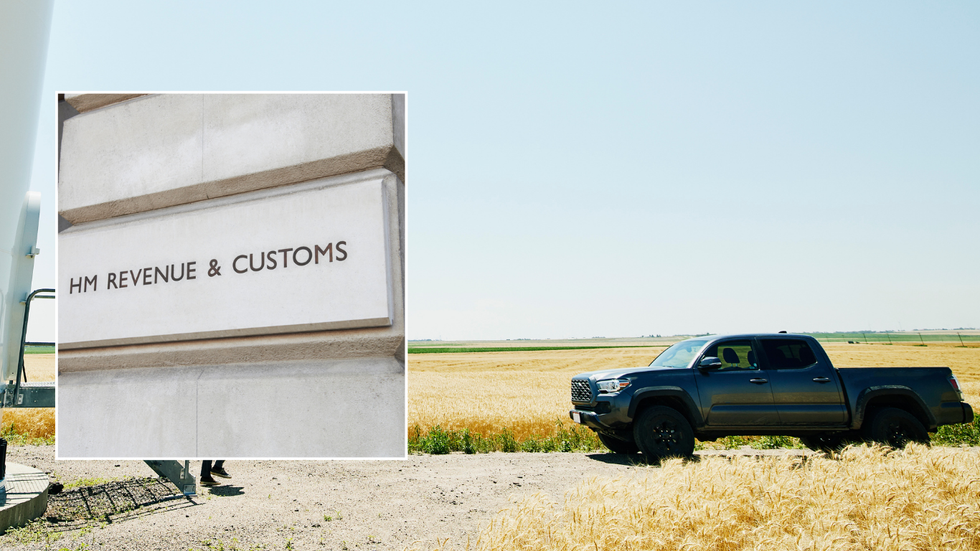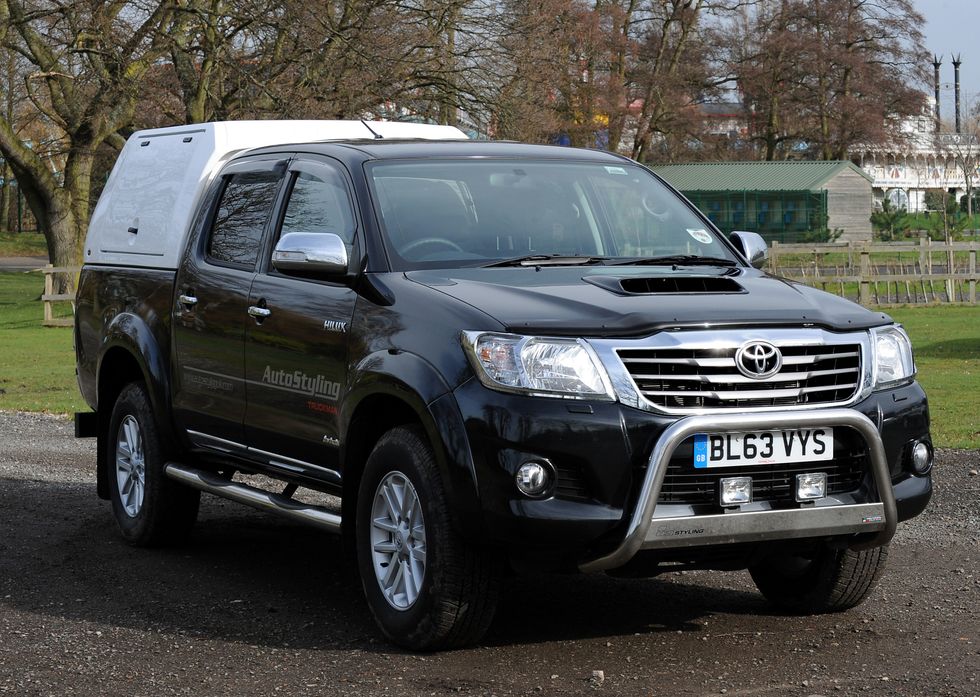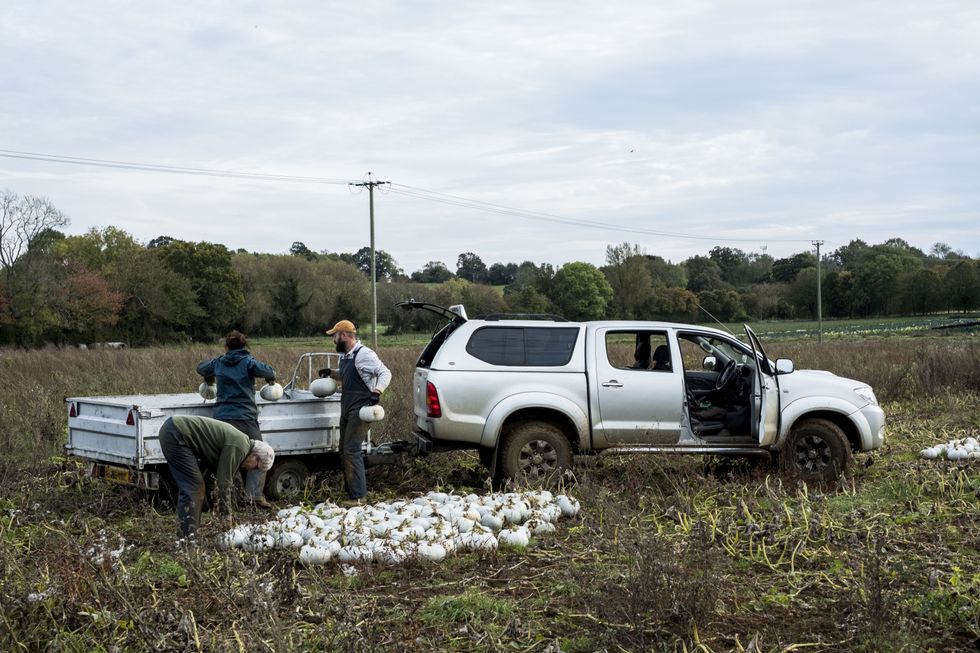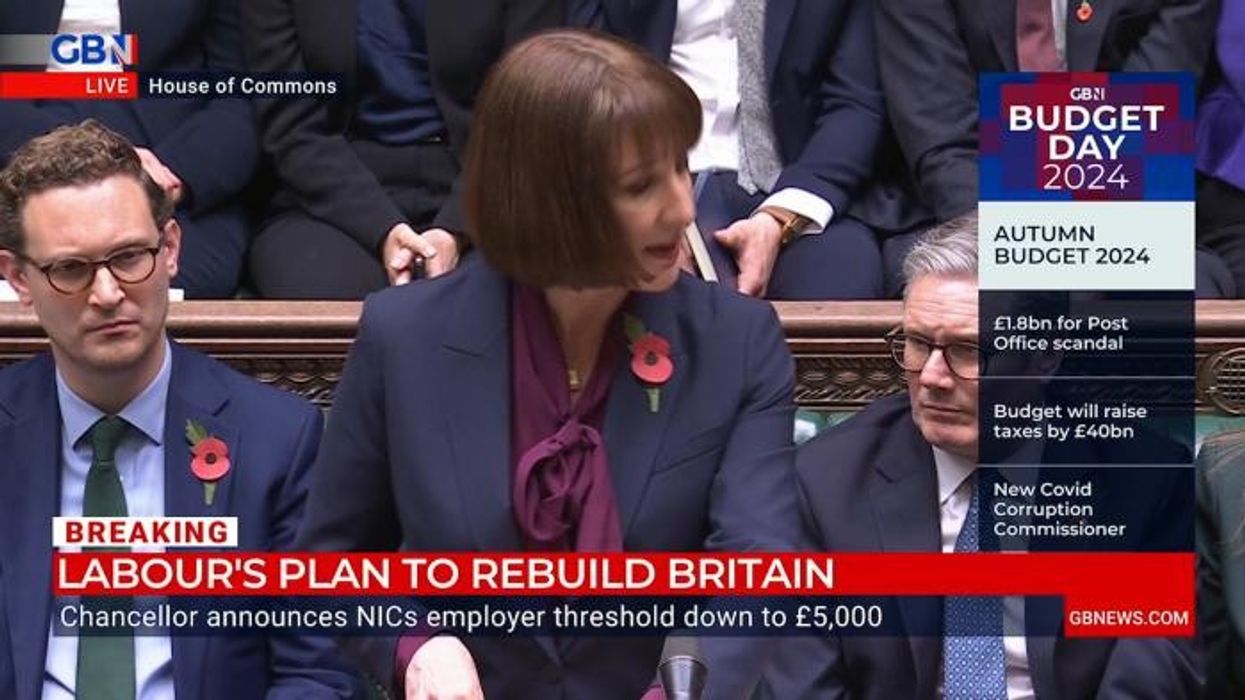HMRC car tax update sees drivers face 400% hike in costs as thousands get hit with 'unaffordable' charges

HMRC reclassified double cab pick-up trucks are company cars, with farmers facing substantial tax increases
Don't Miss
Most Read
Latest
Thousands of motorists have been warned of 400 per cent tax increases following a decision by HMRC to reclassify double cab pick-up trucks as cars rather than commercial vehicles.
The change, implemented in April 2025, eliminates a long-standing tax advantage that allowed drivers of these vehicles to pay a fixed Benefit-in-Kind rate.
Previously, pick-ups with payloads exceeding 1,000 kilograms qualified as commercial vehicles, enabling company car drivers to pay identical tax rates whether they drove a basic van or a luxury £65,000 pickup truck.
**ARE YOU READING THIS ON OUR APP? DOWNLOAD NOW FOR THE BEST GB NEWS EXPERIENCE**
Under the new regulations, these five-seat vehicles now attract taxation based on their exhaust emissions, placing them in the highest tax brackets due to their weight and aerodynamics.

Changes to the Benefit-in-Kind taxes meant that double cab pick-up trucks were hit with higher charges
|GETTY
The reclassification affects only double cab variants with seats behind the driver, while single-cab commercial models remain unaffected.
The financial impact varies dramatically depending on the specific model and the driver's tax bracket. A Ford Ranger Wildtrak owner earning at the 40 per cent tax rate now faces an annual bill of £8,322, compared to £1,608 under the previous system.
This represents an increase exceeding 400 per cent for many affected motorists. The substantial rise stems from these vehicles' high emissions ratings, which place them in the most expensive tax categories.
The disparity has sparked debate about fairness, with some arguing that drivers previously paid less tax for a three-litre diesel pickup than they would have for a one-litre Fiat 500.
 Double cab pick-up trucks were reclassified as company cars under the new tax rules | PA
Double cab pick-up trucks were reclassified as company cars under the new tax rules | PAGreen Party representative Jenny Jones told The Telegraph: "It's clear that some drivers were using the tax benefits intended for genuine businesses to subsidise their choice of the most polluting and inefficient diesel pickups."
The agricultural sector has expressed serious concerns about the new classification system. National Farmers' Union deputy president David Exwood warned that farmers and growers rely on double cab pick-ups "every single day to go about their farming duties, and there are few vehicles that can be used as an alternative".
He emphasised that the reclassification would impose an "unaffordable tax burden" on farmers already facing financial pressures, potentially hampering food production capabilities. The farming community argued these vehicles serve essential functions in transporting equipment, produce and livestock across rural terrain where alternative vehicles prove unsuitable.
Agricultural representatives stressed that pick-ups constitute vital infrastructure for modern farming operations, not luxury items, making the tax increase particularly damaging for an industry already confronting multiple financial challenges.
LATEST DEVELOPMENTS:
- Drivers risk legal penalties and 'total refusal of cover' for 'common' driving misunderstandings on UK roads
- Rachel Reeves' car taxes see certain drivers pay £5,490 as millions look to give up driving to save money
- Major car brands recall 475,000 vehicles as faults could lead to accidents and fires - Ford, Kia and more
But to help drivers, the Government did introduce transitional measures to ease the impact of the tax changes on existing owners.
Businesses that purchased, leased or ordered double-cab pickups before April 6, 2025, can maintain the previous tax rates until disposal, lease expiry, or April 5, 2029, whichever occurs first.
This arrangement extends to employee transfers within the same company, allowing businesses to reassign vehicles between staff members without triggering the new tax rates, provided no disposal or lease expiry occurs.
However, any pickups acquired after the April deadline immediately fall under the new classification system. HMRC guidance specifies that vehicles ordered before April but delivered afterwards still qualify for transitional relief, while trade-ins or new leases after the cut-off date attract the higher charges.

Farm pick-ups are an important part of farmers' lives
|GETTY
Manufacturers have responded to the tax changes by introducing lower-emission alternatives. Ford's plug-in hybrid Ranger maintains the diesel version's 3,500-kilogram towing capacity while producing official emissions of 68 grams per kilometre.
This reduces the tax rate from 37 per cent to 19 per cent, cutting annual costs for higher-rate taxpayers from £8,322 to £4,191. Isuzu plans to launch an electric D-Max variant in early 2026, which would incur just £1,123 in annual tax for 40 per cent taxpayers during the 2026/27 tax year.
However, the electric model's 163-mile range diminishes significantly when towing, potentially limiting its practicality for intensive commercial use.
Filip Czajkowski from Isuzu noted that major fleet customers using vehicles solely for work purposes remain largely unaffected by the changes.










